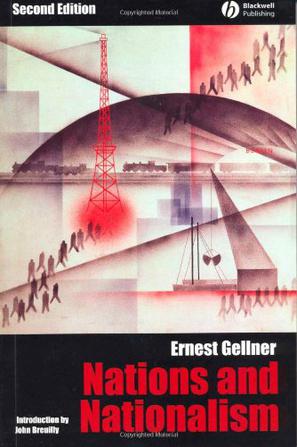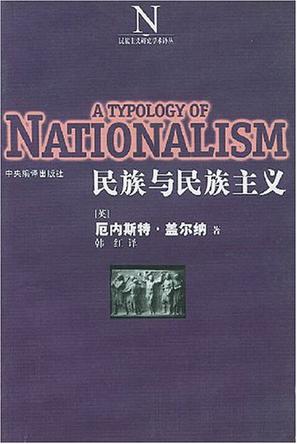-

Staging the World
-

China's New Nationalism
Three American missiles hit the Chinese embassy in Belgrade, and what Americans view as an appalling and tragic mistake, many Chinese see as a "barbaric" and intentional "criminal act," the latest in a long series of Western aggressions against China. In this book, Peter Hays Gries explores the roles of perception and sentiment in the growth of popular nationalism in China. At a time when the direction of China's foreign and domestic policies have profound ramifications worldwide, Gries offers a rare, in-depth look at the nature of China's new nationalism, particularly as it involves Sino-American and Sino-Japanese relations--two bilateral relations that carry extraordinary implications for peace and stability in the twenty-first century. Through recent Chinese books and magazines, movies, television shows, posters, and cartoons, Gries traces the emergence of this new nationalism. Anti-Western sentiment, once created and encouraged by China's ruling PRC, has been taken up independently by a new generation of Chinese. Deeply rooted in narratives about past "humiliations" at the hands of the West and impassioned notions of Chinese identity, popular nationalism is now undermining the Communist Party's monopoly on political discourse, threatening the regime's stability. As readable as it is closely researched and reasoned, this timely book analyzes the impact that popular nationalism will have on twenty-first century China and the world. -

Nationalism
Nationalism is a movement and a state of mind that brings together national identity, consciousness, and collectivities. It accomplished the great transformation from the old order to modernity; it placed imagination above production, distribution, and exchange; and it altered the nature of power over people and territories that shapes and directs the social and political world. A five-country study that spans five hundred years, this historically oriented work in sociology bids well to replace all previous works on the subject. The theme, simple yet complex, suggests that England was the front-runner, with its earliest sense of self-conscious nationalism and its pragmatic ways; it utilized existing institutions while transforming itself. The Americans followed, with no formed institutions to impede them. France, Germany, and Russia took the same, now marked, path, modifying nationalism in the process. Nationalism is based on empirical data in four languages--legal documents; period dictionaries; memoirs; correspondence; literary works; theological, political, and philosophical writings; biographies; statistics; and histories. Nowhere else is the complex interaction of structural, cultural, and psychological factors so thoroughly explained. Nowhere else are concepts like identity, anomie, and elites brought so refreshingly to life. -

Nations and Nationalism
Nationalism is one of the most powerful forces in the modern world, yet it is surprisingly little studied and only imperfectly understood, either by its adherents or its opponents. Its irruption into the modern world is often explained as a resurgence of primitive, atavistic instincts, or as a delusion fostered by a few theoreticians, politicians or propagandists. The present volume interprets nationalism in terms of its social roots, which it locates in industrial social organization. A society that aims for affluence and economic growth, Professor Gellner argues, depends on innovation, occupational mobility, mass media, universal literacy, and education in a shared, standard idiom. Taken together these transform the relationship between culture and the state. The functioning of the society depends on an all-embracing educational system, tied to one culture and protected by a state identified with that culture. The principle one state, one culture makes itself felt, and political units which do not conform to it feel the strain in the form of nationalist activity. --This text refers to an out of print or unavailable edition of this title. Table of Contents About the Authors vii About this Edition viii Editor's Preface to the First Edition R. I. Moore, Founding Editor ix Acknowledgements for the First Edition xi Introduction John Breuilly xiii 1 Definitions 1 State and Nation 3 The Nation 5 2 Culture in Agrarian Society 8 Power and Culture in the Agro-literate Polity 9 Culture 11 The State in Agrarian Society 13 The Varieties of Agrarian Rulers 14 3 Industrial Society 19 The Society of Perpetual Growth 23 Social Genetics 29 The Age of Universal High Culture 34 4 The Transition to an Age of Nationalism 38 A Note on the Weakness of Nationalism 42 Wild and Garden Cultures 48 5 What is a Nation? 52 The Course of True Nationalism Never did Run Smooth 57 6 Social Entropy and Equality in Industrial Society 62 Obstacles to Entropy 63 Fissures and Barriers 72 A Diversity of Focus 73 7 A Typology of Nationalisms 85 The Varieties of Nationalist Experience 94 Diaspora Nationalism 98 8 The Future of Nationalism 106 Industrial Culture - One or Many? 110 9 Nationalism and Ideology 118 Who is for Nuremberg? 125 One Nation, One State 128 10 Conclusion 131 What is not being Said 131 Summary 133 -

民族与民族主义
图赞巴赫:你说,在未来的年代里,地球上的生活将是不可思议的,美妙的。的确如此,然而,即便那种生活尚很遥远,要想成为它的一部分,就必须做好准备,必须工作……是的,必须工作,也许你会想——这个德国人过于激动了,但是,我发誓,我是俄国人。我连德语都不会讲,我的父亲是东正教徒…… 我们的民族犹如我们与女人的关系:它与我们的道德本质是连在一起的,无法体面地改变,它纯属偶然,不值得改变。 -

民族主义
民族主义认为人类自然地分不同的民族,这些不同民族是而且必须是政治组织的严格单位。 社会主义在苏维埃帝国及其卫星的崩溃和失败并不意味着意识形态形式的政治消失——远远不是。正像我们所能看到的那样,它已经以一种对社会主义的逆反方式,复活了民族主义。 事实上,民族主义意识形态,显然不是繁荣的保证书,或者是可信任的好政府的保证书,民族解放阵线在阿尔及利亚的30年统治,伊拉克、叙利亚和埃及的民族主义政权的记录,或者是铁托及其继承者统治下的南斯拉夫专制政权的记录,是几个可以用来加以说明的例证。